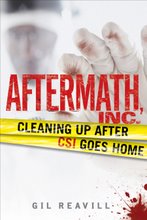
 Eric: I had a big hand, a kind of slight of hand, with the The Prestige DVD. Now in stores on 2/20.
Eric: I had a big hand, a kind of slight of hand, with the The Prestige DVD. Now in stores on 2/20.
What I quite like about Christopher Nolan’s The Prestige, is his vision, a foresight that includes all the creatives and talent who conspired to tell a story about a time and place not dissimilar to now, a world in turmoil, searching for bigger truths.
I think the period culture in the movie is so rich texturally that it is almost an epic. The movie manages to depict a new era zeitgeist at the crossroads of a fin de siècle, an amorphous London full of conflicting desires born out of war and the spectacle of new sciences transforming the world; a sea change crashing in without the purview of Christianity.
But, critics focused, mostly, on the lackluster of the story's big reveal “magic trick” in The Prestige compared to the “trick” in The Illusionist, that are in both cases, cinematic slights of hand to the audience. Or, cinema pundits have merely zeroed in on how The Prestige’s story is about obsession as it too was one theme in the book. I think Nolan really wanted to show that magicians of the day were the rock stars of the time—to achieve that, he could have shown more of the audience reaction and awe to the conjuror theatrics.
Everyone interviewed for the making of documentary, the Featurette as is it is more femininely called, had quite interesting things to say about their research for the movie. DVD documentaries being what they must be, meant that only so much of the deep and brainy ideas discussed in interviews could fit into the editorial without making a feature in itself. I tried to put in as many revelatory insights as I could.
And, funny, I can’t remember all that went into the final cut of the DVD documentary of The Prestige, but here is a bit from Hugh Jackman, who so interestingly talked about background of the movie during the original interview on set: 
Hugh Jackman (Angier) :
“There was, this era that was fascinating because you have to understand that in America at this time, spiritualism was a greater religion than Christianity. So there were more spiritualists than there were Christians. And leading up to and post WWI because so many people died, the obsession with contacting the afterlife, being in contact with séances so on, informed magicians acts and what made them seem incredible. If you remember with WWI; I mean it decimated the male population of most of these countries so many people were obsessed with being in contact with the other world, the afterlife and magicians seemed to offer that as a real possibility. And so many of the shows, not only did they have death defying feats, and things like chaining themselves up, and drowning themselves, and being under water and life threatening situations, there was a lot of ghosts coming to life, you saw a lot of that stuff on stage and magicians was where it started. It then translated to the theater. People used magicians, like Thurston's stuff , they used bits from his stage show to do Macbeth, the ghost of Macbeth. I think magicians back then are now the people who do special effects on movies. I mean, these guys were incredible engineers, their imaginations were incredible and they were given this impossible task and told let’s see if we can make it happen and you see that on a movie set almost every day.”
Well, seeing the DVD (all the extras on it) is like seeing and experiencing a different version of the movie; it sometimes is like seeing the movie and reading the book that the movie came from, hearing a radio show conversation about the movie and spying in on how things really happened to make the movie.
Monday
Rock Stars Of The Afterlife…
Posted by
Freckle E
at
8:01 PM
![]()


